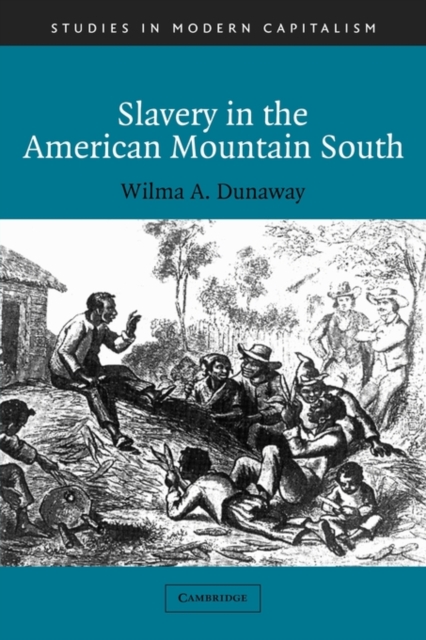
Slavery in the American Mountain South Paperback / softback
by Wilma A. (Virginia Polytechnic Institute and State University) Dunaway
Part of the Studies in Modern Capitalism series
Paperback / softback
Description
Wilma Dunaway breaks new ground by focusing on slave experiences on small plantations in the Upper South.
She argues that a region was not buffered from the political, economic, and social impacts of enslavement simply because it was characterized by low black population density and small slaveholdings.
By drawing on a massive statistical data base derived from antebellum census manuscripts and county tax records of 215 counties in nine states, on a vast array of slaveholder manuscripts, and on regional slave narratives, she pinpoints several indicators that distinguished Mountain South enslavement from the Lower South.
These include a higher incidence of ethnic mixing between African and Native American slaves, heavier reliance on the field labor of women and children, and more frequent assignment of slaves to non-agricultural occupations.
Dunaway also calls into question the notion that large numbers were necessary before slaves could engage in community building and resistance.
Information
-
Out of stock
- Format:Paperback / softback
- Pages:368 pages, 9 Maps; 32 Halftones, unspecified
- Publisher:Cambridge University Press
- Publication Date:19/05/2003
- Category:
- ISBN:9780521012157
Information
-
Out of stock
- Format:Paperback / softback
- Pages:368 pages, 9 Maps; 32 Halftones, unspecified
- Publisher:Cambridge University Press
- Publication Date:19/05/2003
- Category:
- ISBN:9780521012157










